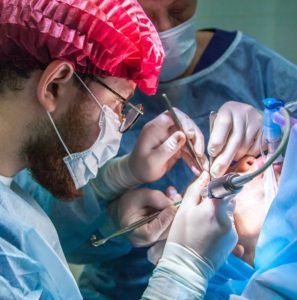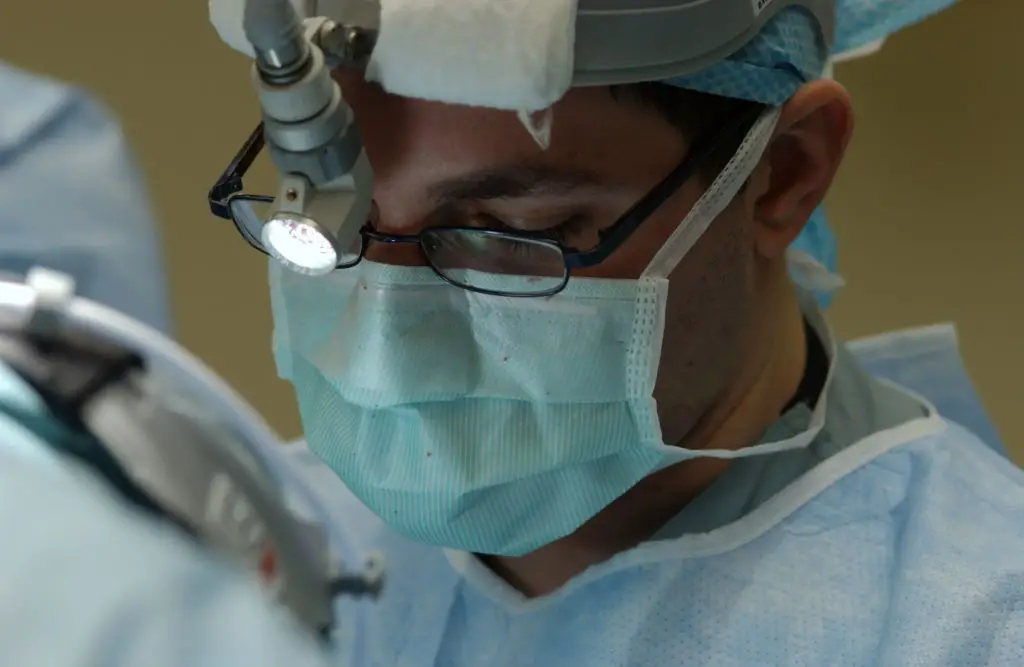Ever heard of an Oculoplastic Surgeon and what do they do? Let’s check it out below.
Oculoplastic Surgeon

An oculoplastic surgeon is a medical doctor who specializes in the diagnosis and treatment of disorders of the eyelids, lacrimal (tear) system, and orbit (eye socket). Oculoplastic surgeons are also experts in cosmetic surgery on the face, including blepharoplasty (eyelid surgery), brow lift, and facelift.
Oculoplastic surgeons complete four years of medical school followed by a one-year internship. They then complete a three-year residency in ophthalmology. After completing their residency, oculoplastic surgeons may choose to complete a one- or two-year fellowship to further specialize in their field.
The majority of oculoplastic surgeons practice in the United States. However, there are also oculoplastic surgeons practicing in Canada, Europe, Asia, and South America.
Oculoplastic surgeons are highly trained medical professionals who provide both surgical and nonsurgical care to patients with disorders of the eyelids, lacrimal system, and orbit. Oculoplastic surgeons use a variety of techniques to treat these disorders, including surgery, lasers, and injectable fillers.
In addition to treating disorders of the eyelids, lacrimal system, and orbit, oculoplastic surgeons also provide cosmetic surgery on the face, including blepharoplasty, brow lift, and facelift. Oculoplastic surgeons are uniquely qualified to perform these procedures because of their extensive training in facial anatomy and eye surgery.
If you are considering any type of cosmetic or reconstructive surgery on the face, you should consult with an oculoplastic surgeon. Oculoplastic surgeons are specially trained to provide you with the best possible outcome.
Skills Required To Become An Oculoplastic Surgeon
Oculoplastic surgery requires four years of medical school and a one-year internship before becoming a specialty. After that, you’ll need to complete a three-year ophthalmology residency. Once you’ve completed your residency, you may wish to pursue additional training in your chosen field by completing a fellowship.
The skills required to become an oculoplastic surgeon include:
- Knowledge of human anatomy
- Knowledge of the function and disorders of the eye
- Surgery skills
- Communication skills
- Interpersonal skills
- Organizational skills
- Critical thinking skills
- Problem-solving skills
Good Reads: What Happens If You Don’t Take Prenatal Vitamins While Pregnant?
When To See An Oculoplastic Surgeon

You should see an oculoplastic surgeon if you have any of the following conditions:
- Eyelid drooping
- Ptosis
- Eye bags or puffiness
- Excessive tearing
- Dry eyes
- Watery eyes
- Red eyes
- Itchy eyes
- Swollen eyes
- Recurrent styes
- Thyroid eye disease
- Socket surgery
- Orbital trauma
- Enucleation
How Much Does An Oculoplastic Surgeon Make?
In the United States, oculoplastic surgeons make an average of $300,000 per year. However, salaries can range from $250,000 to $400,000 per year, depending on experience and location.
What Is The Job Outlook For An Oculoplastic Surgeon?
The job outlook for oculoplastic surgeons is positive. The demand for these specialists is expected to grow in line with the aging population. In addition, the number of people undergoing cosmetic surgery procedures is also expected to increase.
If you are considering a career in oculoplastic surgery, you should contact your local medical school or residency program to learn more about the training and skills required to become an oculoplastic surgeon.
Interesting Article: What Is A Nurse Tech?
Perks Of Being An Oculoplastic Surgeon
As an oculoplastic surgeon, you will have the opportunity to help people improve their appearance and confidence. In addition, you will be able to work in a variety of settings, including hospitals, private practices, and research facilities.
Oculoplastic surgeons enjoy a high degree of job satisfaction. They also earn a competitive salary and benefit from excellent job security.
You Might Like: When To Stop Chiropractic Treatment?
Details About Being An Oculoplastic Surgeon
If you are considering a career in oculoplastic surgery, it is important to be aware of the following:
- Oculoplastic surgeons work long hours and are on call 24 hours a day.
- The work can be physically and emotionally demanding.
- Oculoplastic surgeons must be able to handle stress and make quick decisions.
You will need to complete a four-year medical school program and a one-year internship before becoming a specialty. After that, you’ll need to complete a three-year ophthalmology residency. Once you’ve completed your residency, you may wish to pursue additional training in your chosen field by completing a fellowship.
The job outlook for oculoplastic surgeons is positive. The demand for these specialists is expected to grow in line with the aging population. In addition, the number of people undergoing cosmetic surgery procedures is also expected to increase.
Oculoplastic surgeons enjoy a high degree of job satisfaction. They also earn a competitive salary and benefit from excellent job security. If you are considering a career in oculoplastic surgery, it is important to be aware of the following: Oculoplastic surgeons work long hours and are on call 24 hours a day. The work can be physically and emotionally demanding.
Oculoplastic surgeons must be able to handle stress and make quick decisions. You will need to complete a four-year medical school program and a one-year internship before becoming a specialty. After that, you’ll need to complete a three-year ophthalmology residency. Once you’ve completed your residency, you may wish to pursue additional training in your chosen field by completing a fellowship.
There are many advantages to becoming an Oculoplastic surgeon, including the opportunity to help people feel better about themselves, work in a variety of settings, and earn a competitive salary.
Difference Between Oculoplastic Surgeons And Ophthalmologists
While both oculoplastic surgeons and ophthalmologists are medical doctors who specialize in the care of the eyes, there are some key differences between these two professions. Oculoplastic surgeons focus specifically on surgeries of the eyelids and surrounding structures, while ophthalmologists provide comprehensive eye care, including diagnosis and treatment of diseases of the eye.
Related Reads: Why Do Doctors Have Bad Handwriting?
Frequently asked questions

What is oculoplastic surgery?
Oculoplastic surgery is a type of surgery that focuses on the structures around the eye, including the eyelids, eyebrows, and tear ducts. This type of surgery can be used to correct functional problems, such as drooping eyelids that are interfering with vision, or cosmetic concerns, such as wrinkles or sagging skin around the eyes.
What are some common procedures performed by oculoplastic surgeons?
Common procedures performed by oculoplastic surgeons include blepharoplasty (eyelid surgery), brow lift, and tear duct surgery. Oculoplastic surgeons may also inject botulinum toxin (Botox) or fillers to improve the appearance of the area around the eyes.
What are the benefits of oculoplastic surgery?
Oculoplastic surgery can improve vision, correct functional problems, and enhance appearance. In some cases, it can also be used to treat medical conditions, such as tumors or birth defects.
What are the risks of oculoplastic surgery?
As with any type of surgery, there are some risks associated with oculoplastic surgery. These include bleeding, infection, and allergic reactions to anesthesia. In rare cases, more serious complications, such as blindness, can occur.
Is oculoplastic surgery covered by insurance?
In most cases, insurance will cover at least a portion of the cost of oculoplastic surgery if it is performed to correct a functional problem, such as ptosis (drooping eyelid). However, insurance typically does not cover cosmetic procedures.
What is the recovery time for oculoplastic surgery?
Recovery from oculoplastic surgery varies depending on the type of procedure that is performed. In general, however, most people can expect to return to their normal activities within a week or two. More strenuous activities, such as exercise, may need to be avoided for several weeks.
Final Thoughts
If you are considering a career in oculoplastic surgery, it is important to be aware of the long hours and on-call schedule. You will also need to complete a four-year medical school program and a one-year internship before becoming a specialty. Despite the challenges, there are many advantages to becoming an oculoplastic surgeon, including the opportunity to help people feel better about themselves, work in a variety of settings, and earn a competitive salary.

